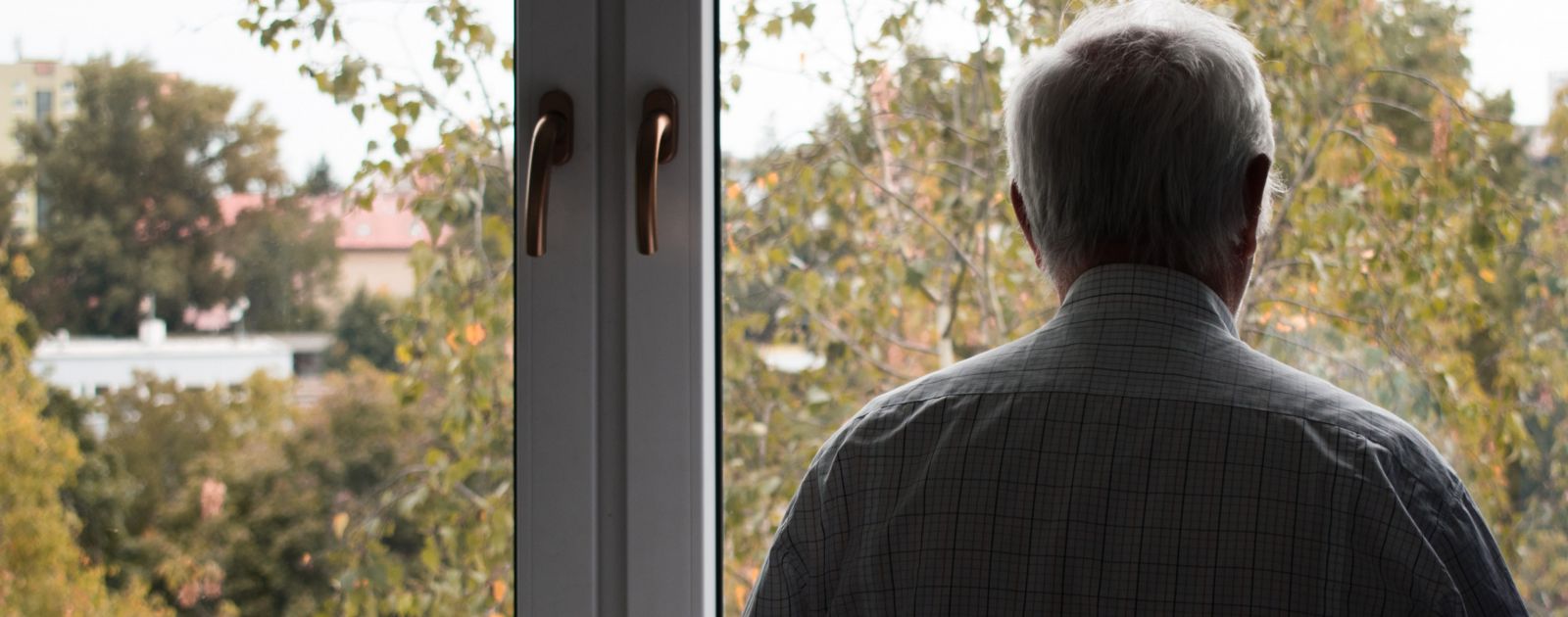
The Health Impacts of Loneliness
Author: Sara Stagg
It's estimated that around one million older people in the UK are chronically lonely. This can have a serious impact on their health, leading to conditions like heart disease, depression and dementia. In this article we explore the issue of loneliness in more detail.
Loneliness is a familiar emotion that can affect us all, regardless of our age. It is a natural human instinct and a self-indicator that we need more or different social interactions.
Whilst loneliness is not limited to older generations, two million people over the age of 75 in the UK live alone, making them especially vulnerable to loneliness. According to the Campaign to End Loneliness, over a million older people in the UK are chronically lonely. A situation that was exacerbated by the pandemic with 1 in 3 elderly people feeling lonelier in the wake of COVID-19.
Loneliness not only makes you feel bad, but it’s also negative for both mental and physical health. As Loneliness Awareness Week (hosted by the Marmalade Trust and taking place this year from 13 - 17 June) encourages us to be more aware of loneliness, now is the time to consider how you and those around you are feeling about solitude.
Types of loneliness
Loneliness itself is not a simple feeling, it is a complex emotion and there are many different types of loneliness, including:
Emotional loneliness
When someone you were very close to is no longer around and that companionship, attachment, and meaningful relationship is gone.
Social loneliness
Being alone is not the same as being lonely. The feeling of loneliness can equally apply when you’re around others, especially if you don’t feel understood or cared for by those around you. Social loneliness is typically experienced by those who have problems in social situations because of shyness, social awkwardness, or a sense of low self-esteem.
Situational loneliness
Situational loneliness occurs due to a change in circumstances such as moving house or starting a new job, and a feeling of being unsettled as a result.
Chronic loneliness
Feeling lonely all or most of the time. As opposed to transient loneliness, which is a feeling that comes and goes, chronic loneliness is a long-term condition.
Loneliness and mental health
Loneliness and mental health are closely connected – feeling lonely can impact your mental health and having a mental health problem can increase your chance of feeling lonely.
Loneliness can be associated with an increased risk of certain mental health problems, including depression, anxiety, low self-esteem, sleep problems and stress.
Physical effects of loneliness
It isn’t just mental health that is impacted by loneliness. Loneliness can cause physical health problems including cardiovascular risks, increased blood pressure, depression, cognitive decline, and poor sleep. According to the Marmalade Trust loneliness is as harmful to health as smoking 15 cigarettes a day.
Some studies have found that long-term loneliness and a lack of social contact are associated with cognitive decline. This can affect memory loss and increase the risk of neurological issues like dementia and Alzheimer’s.
Steps to help with loneliness
If you feel lonely, or you think that someone close to you could be feeling lonely, try and take some time to check in with yourself or with them. Even just a few small kind simple steps could make all the difference to yourself and others.
- Arrange a weekly meal or even just a cuppa together. If you can’t physically be together, schedule in a regular phone call or online get together.
- Write a letter or a card. In an increasingly online world, the joy of receiving cheerful post is often overlooked, but particularly for older people with limited access to digital resources, a letter, some printed photos, or a painting from a grandchild could be a happy physical reminder that they are loved.
- Get out and about together. Getting out in the great outdoors can be just the tonic for everyone involved and combines company with some exercise.
- Say hello and smile to people you pass by – you might just make someone’s day.
- Volunteering is an experience that can be fulfilling and combat loneliness not just for the organisation or person being helped, but also for the volunteer.
- Join a group or club based on an activity that you enjoy. Engaging with like-minded people will mean that you’re more likely to find the right kind of social interaction for you and not feel lonely when you’re in groups.
Overcoming loneliness at The Dower House
The Dower House is a nursing home in the Hampshire countryside near Winchester.
All our residents are a much-loved part of The Dower House family along with our nursing staff taking care of our community. We have beautiful communal areas both inside and outside for everyone to enjoy together. We run an inclusive activities and events schedule, and welcome suggestions from our residents for what they would like to do and enjoy together.
If you’d like to book a visit to find out more about The Dower House and to view the facilities, please call us on 01962 882848 or click the ‘Book a visit’ button at the top of the page.
< Back to all Blog posts
Enjoy a taste of life at The Dower House
Join us for a tour of the house to experience the welcoming, homely atmosphere. Book a visit now, we’d be delighted to welcome you.
